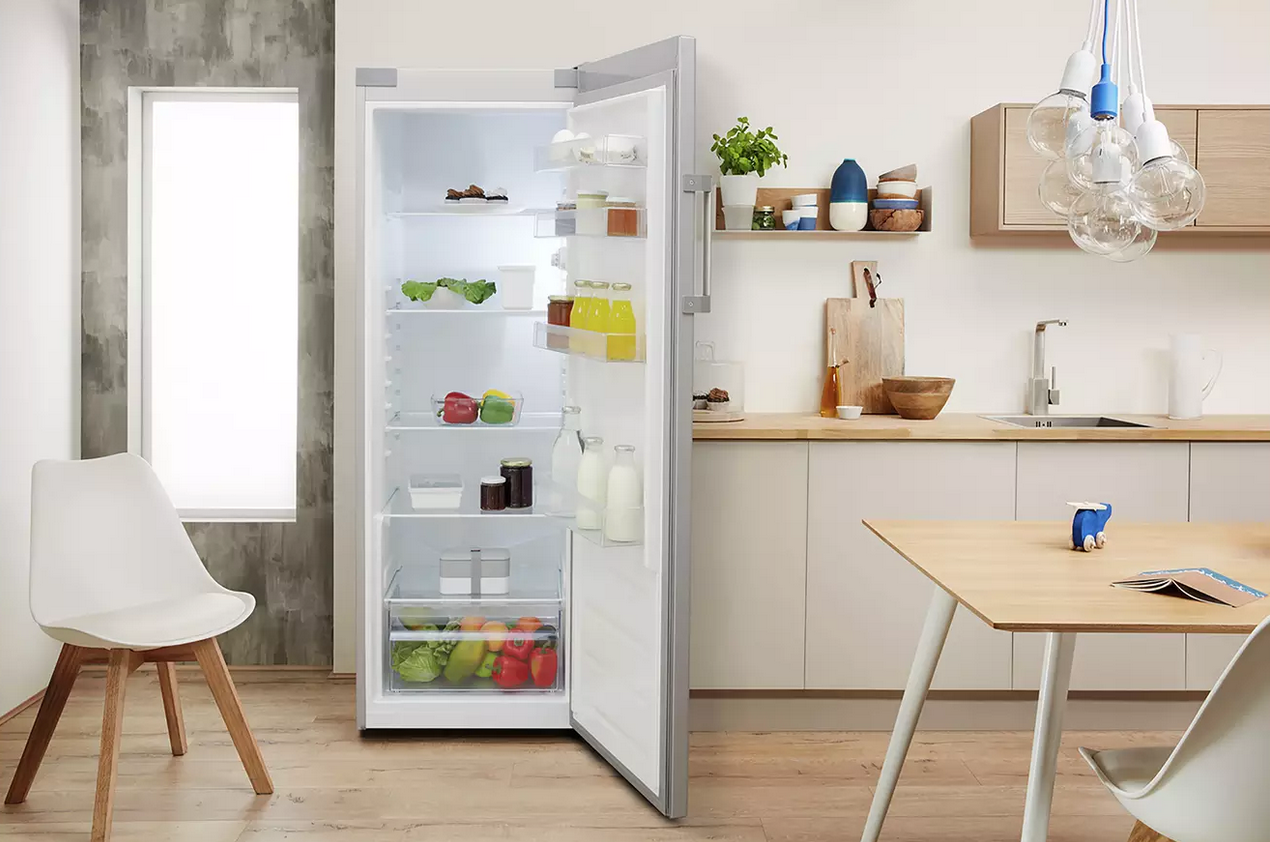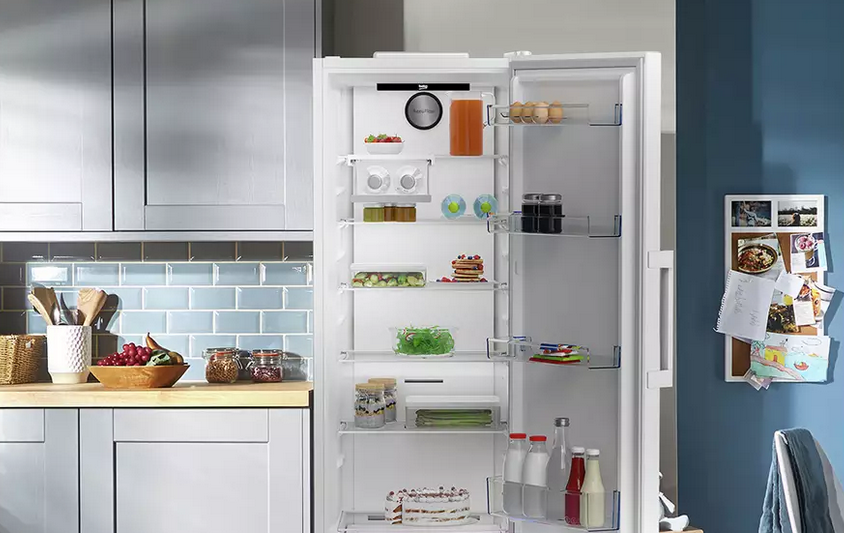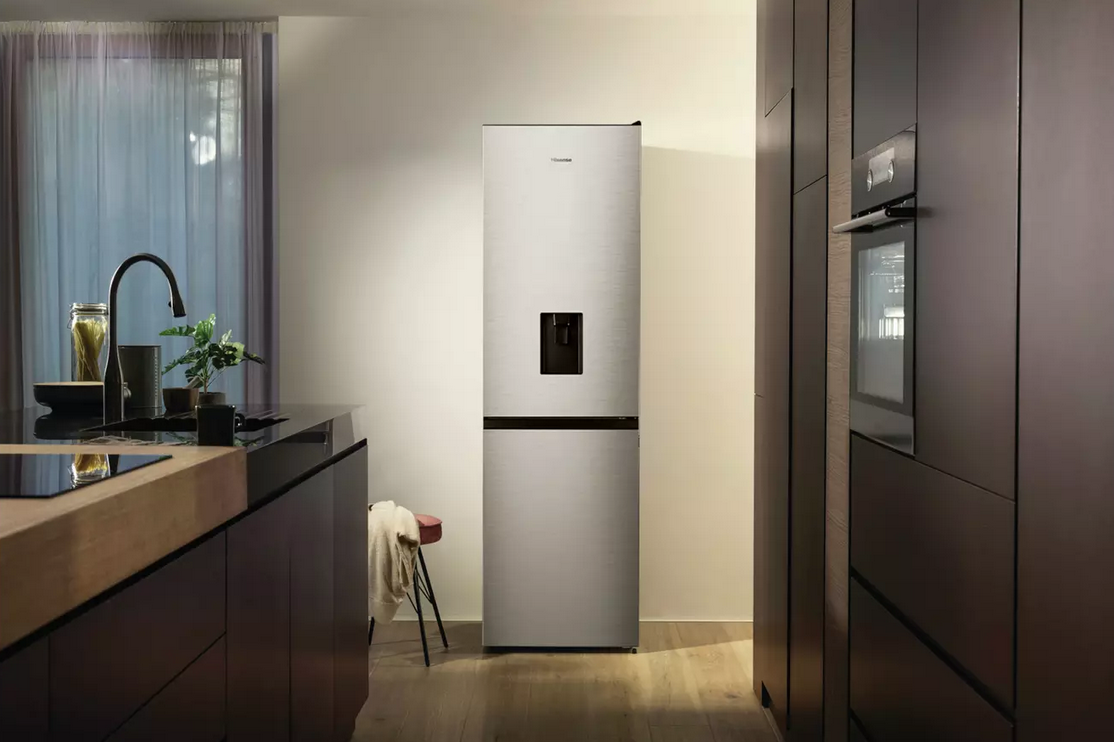
Have you ever heard noises coming from your fridge freezer and wondered, what could be making this sound? It’s nothing to fear, but it’s important that we understand what makes these sounds so we can use our appliances with ease. In this article we look at why fridge freezers make noises and what makes them.
The normal operating sounds
Firstly, you should recognise that most sounds from fridge freezers are nothing to be concerned about and are normal operational noises. For example, humming noises. These sounds are the result of different parts of the refrigeration process.
A humming or clicking sound usually indicates the compressor is kicking in. The compressor is a key part of the fridge freezer, responsible for the cooling process and temperature regulation. It normally kicks into action periodically, for example every hour, to keep the temperature constant. Similarly, if the door has recently been opened this can affect the temperature, so the compressor will work a bit harder to get it to where it needs to be.
Whirring from the fan
If you’ve heard a soft whirring noise, then it is likely to be the fan. The fan is another key part to the refrigeration process, helping to distribute the cold air around the inside of the appliance. This noise can become louder depending on the temperature of the appliance, and the temperature it needs to be at. This may kick in the same time the compressor makes a noise as they can work harmoniously together.
Gurgling from the defrost cycle
Depending on the type of fridge freezer you have, you may find your appliance automatically defrosts itself. Essentially, this means you don’t need to turn it off and scrape it of ice, rather the appliance will regulate the temperature enough that it can completely defrost itself and start back up again without interference. This process can sometimes produce a gurgling sound as the temperature adjusts inside the appliance.

Dripping from the drip tray
Some fridge freezers will have a drip tray located at the back. The purpose of this is that when water droplets fall down the back of the fridge wall, then go into a drainage hole and down into a drip tray where they evaporate. If the appliance is trying to regulate the temperature after a significant temperature change, for example a change in season, it may be circulating more air than normal resulting in more water entering the drip tray. This is part of the normal operation and is not a cause for concern. We recommend checking the drip tray to ensure it isn’t too full and emptying if necessary.
Creaking and cracking noises from expansion
Many fridge freezers have shelves which are made from plastic. When the appliance regulates itself to the desired temperature, the internal plastic parts may contract. If the temperature gets warmer than anticipated, the plastic parts can also expand slightly. This can create a creaking sound at times. Equally many parts of the fridge freezer’s in workings could experience an odd creak or crack noise due to the expansion of it working parts.
It is also important to recognise that sometimes what you are putting in the fridge may expand too. For example, a plastic container that has been at a warm temperature is likely to contract when put into the cold appliance, so it is important to note the contents could be causing a noise.
How to prevent noises
Whilst some of the noises can be inevitable, there are some ways you can reduce noises. The main noises are a result of processes to regulate temperature. To stop the noises from being too loud, you should do your best to prevent temperature fluctuations. This means avoiding opening the door too frequently, avoiding overloading the appliance, and ensuring there is sufficient clearance around the outside for ventilation.
Conclusion
If there are sounds that you still believe to be abnormal or too loud above the ordinary, then we recommend contacting the support team for your product by checking your user manual or consulting the product page on the Argos Support Site.
You can check out more of our articles on Fridge Freezers below:
- Why should you keep your fridge freezer organised?
- Defrosting your chest freezer
- The importance of cleaning your fridge freezer
- Keeping your fridge freezer cool in the heat
- Why do appliances need clearance?
- Why do fridge freezers need to settle?
- What is wet wall refrigeration?
- How does room temperature affect fridge freezers?
- Support Made Simple: Fridge Freezer Troubleshooting Guide
